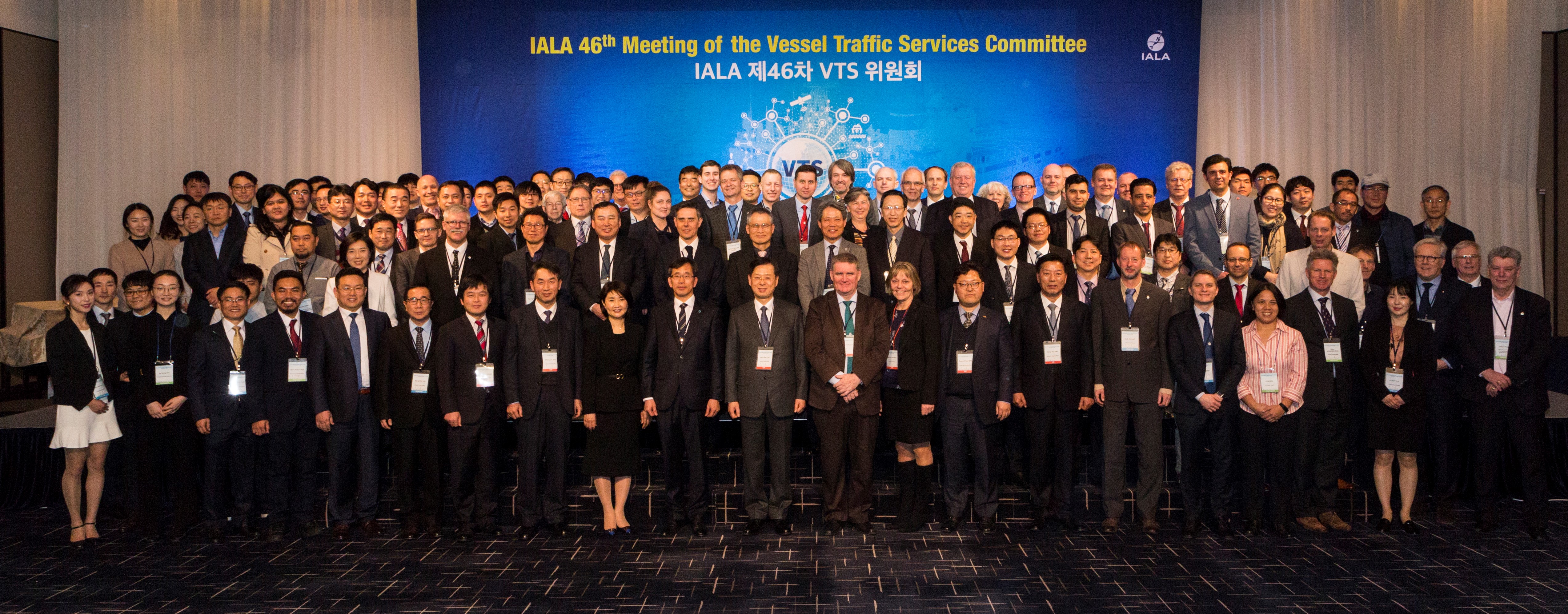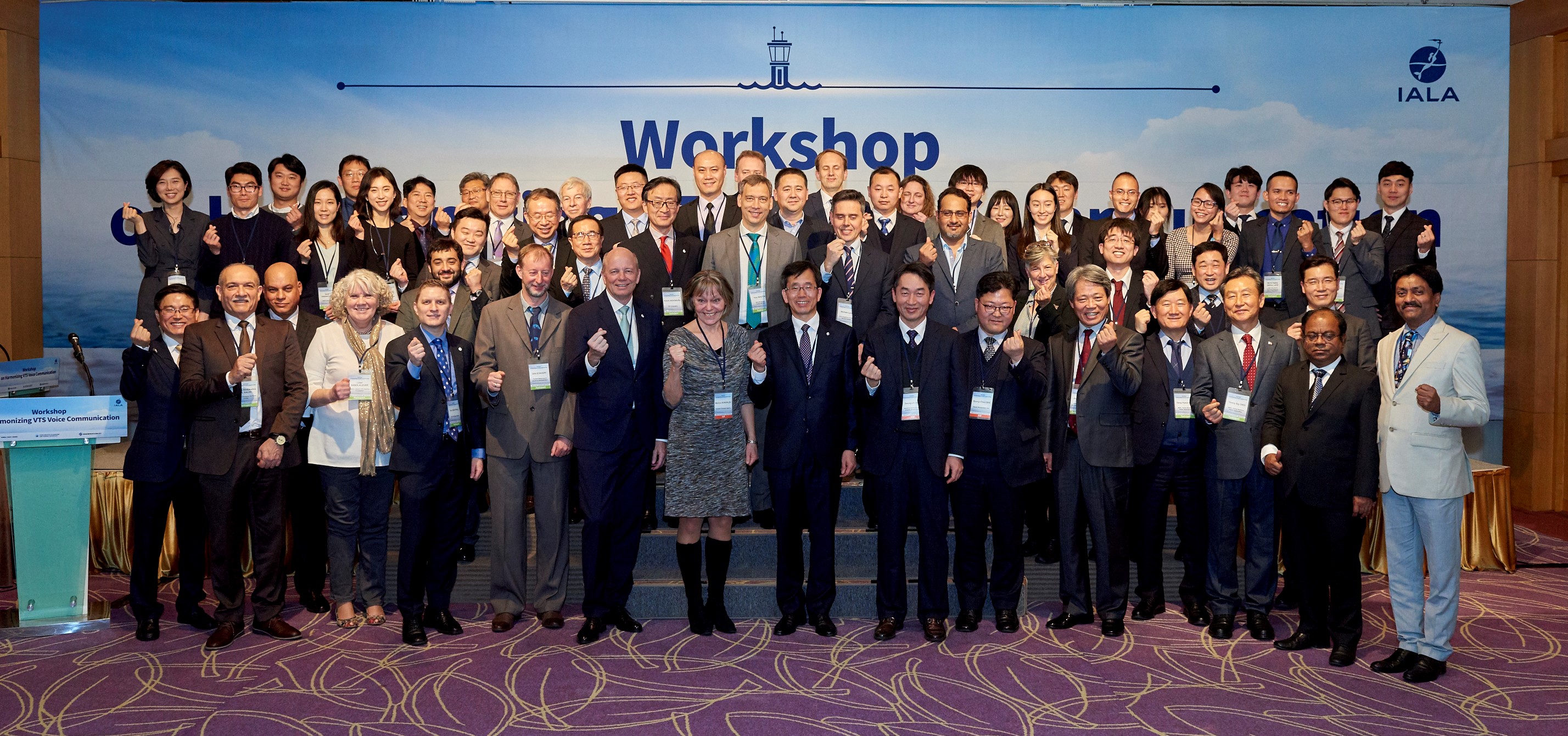VTS46 and Workshop on VTS Voice Communication
The 46th Session of the VTS Committee was held at the Westin Chosun Hotel in Busan, Republic of Korea between the 25 February and 1 March 2019. The meeting was hosted by the Korea Coast Guard who also arranged a technical tour and social programme.
101 Participants from 25 countries, 3 Sister organisations and 4 observers participated in VTS46.
This was the second meeting for the 2018-2022 Work Programme and the VTS Committee considered 55 input papers and produced seven output papers of three Working Groups.
Key outputs included:
The completion of the following new Guideline:
- Guideline on promulgating the requirements of a VTS to mariners, a VTS users guide template;
Significant progress was made with regards to the revision of IMO Resolution A.857(20) Guidelines on vessel traffic services (Task 1.1.1). The Committee was very grateful for the valuable input provided by a representative from the IMO Secretariat. The following progress was made:
- Further development of the revised resolution submitted by the correspondence group taking onboard advice from the IMO Secretariat;
- The development of an input paper to update the 101st session of the IMO Maritime Safety Committee informing them of the progress made with the revision of the resolution and inviting Member States and non-governmental organisations to the IALA Seminar on the revision of the resolution.

The workshop on Harmonising VTS Voice Communication was held at the Westin Chosun Hotel in Busan, Republic of Korea from 19 to 22 February 2019. 36 participants from 13 countries and 2 sister organisations participated to this workshop.
The workshop conclusions were:
- It is vital that VTS phraseology and voice communication are standardised in order to deliver a harmonized service to mariners worldwide.
- There is a need to revise the VTS section of IMO SMCP.
- To ensure consistent communication and use of standardised phraseology, mutual training of both mariners and VTS personnel should be encouraged.
- The use of various training tools, such as software applications, is considered useful to assist VTS personnel for continual professional development in VTS phraseology.
- Training of language and VTS voice communication differs widely amongst training organizations which may lead to inconsistent delivery of VTS.
- To ensure all parties involved understand VTS voice communications, IALA should consider requesting input on phraseology from other relevant maritime organizations.


